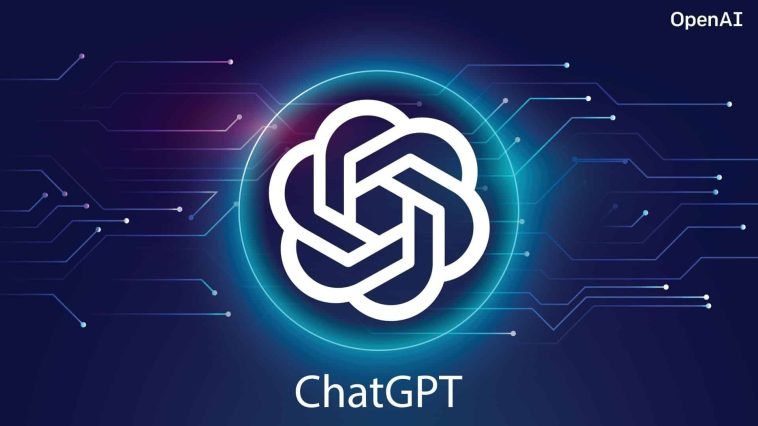Introduction.
Artificial intelligence has rapidly found its way into almost every industry, and trading is no exception. ChatGPT, developed by OpenAI, has quickly become a popular tool for traders and investors looking for an edge in the markets.
Whether you’re looking for insights into market trends, or automated trading signals, or simply want a tool to help you better analyze data, ChatGPT can be a valuable asset.
However, like any tool, it has its pros and cons, and understanding how to use it effectively can make all the difference.
In this article, I’ll explore how ChatGPT can be utilized in trading, break down the advantages and limitations, and provide a step-by-step guide to getting started. Let’s dive into how you can leverage this AI for smarter trading decisions.
What Is ChatGPT and Why Use It in Trading?
ChatGPT is a language model powered by OpenAI’s GPT technology, designed to understand and generate human-like text based on input prompts.
In trading, ChatGPT can assist in several ways, from analyzing stock market news and creating trade signals to generating insights on specific securities.
The model’s versatility means that traders can use it for various tasks, each with the potential to enhance decision-making.
How Do I Use ChatGPT For Trading?
1. Market Analysis.
ChatGPT can help with real-time market analysis by summarizing market news, analyzing stock or cryptocurrency performance, and even generating financial insights.
You can input relevant questions or data, and ChatGPT will provide summaries that might help clarify trends or highlight market opportunities.
2. Trade Ideas and Strategy Development.
ChatGPT is great at helping with idea generation, which can be especially helpful for day traders or those looking to diversify their strategies.
By inputting key variables (e.g., timeframe, risk tolerance), ChatGPT can suggest trading strategies and ideas that align with a user’s goals.
However, it’s worth noting that ChatGPT doesn’t inherently know about the stock market’s intricacies but can assist in organizing thoughts or analyzing strategies.
3. Sentiment Analysis.
Many traders rely on sentiment analysis to gauge market direction. ChatGPT can process news headlines, financial reports, and even social media content to detect sentiment trends.
For instance, if sentiment around a stock shifts dramatically, it could serve as a potential trade signal.
4. Data Analysis and Pattern Recognition.
ChatGPT can help you better understand complex datasets or identify patterns in historical data, although its capacity for real-time data is limited.
You can upload historical market data and ask ChatGPT to analyze trends, which can aid in identifying entry and exit points for trades.
Keep in mind that this requires high-quality data and well-crafted prompts to produce meaningful insights.
5. Automating Routine Tasks.
Some traders use ChatGPT to automate routine tasks, like drafting daily summaries of market conditions, writing end-of-day reports, or summarizing key economic indicators.
Automation can save time and allow you to focus on strategy rather than administrative tasks.
Pros and Cons of Using ChatGPT for Trading
Pros
- Improved Efficiency: ChatGPT can handle time-consuming tasks, allowing you to focus more on strategic decision-making.
- Low-Cost Alternative to Professional Analysis: Unlike costly financial data platforms, ChatGPT is a more affordable option for analyzing market sentiment and summarizing reports.
- Consistent Output: ChatGPT can quickly produce consistent outputs for repeated tasks, making it a reliable tool for regular trading reports or summaries.
- Wide Range of Applications: From sentiment analysis to data summaries, ChatGPT is flexible and can adapt to multiple trading-related tasks.
Cons
- Limited Real-Time Data: ChatGPT currently does not have real-time data processing capability, which limits its use for immediate trading decisions.
- Not a Financial Expert: While ChatGPT can process and summarize information, it doesn’t inherently “understand” financial markets in the way a human expert does.
- Risk of Overreliance: Relying too heavily on ChatGPT without a solid trading strategy may lead to poor decision-making.
- Potential for Inaccurate Data Interpretation: If provided with unclear or biased data, ChatGPT could produce misleading insights, so it’s important to double-check outputs.
FAQ
1. Can ChatGPT predict stock prices?
No, ChatGPT doesn’t predict stock prices. It can provide analyses based on historical data or assist with sentiment analysis, but accurate price prediction requires specialized algorithms and live market data, which it currently doesn’t have access to.
2. How do I make ChatGPT more accurate for trading purposes?
To improve accuracy, ensure that your data input is clear, unbiased, and detailed. The more specific your prompts are, the better your results. Using quality data and providing context can help ChatGPT deliver more relevant insights.
3. Can ChatGPT replace a professional financial advisor?
Not entirely. While ChatGPT can assist in analyzing data and summarizing information, it lacks the nuanced understanding that a human advisor provides, especially in complex markets or unique financial situations.
4. How much does ChatGPT cost for trading purposes?
ChatGPT offers various pricing tiers. If you’re using it for light research or data analysis, the basic plan might suffice. However, professional traders who rely heavily on ChatGPT’s capabilities may want to consider a paid subscription for additional features and faster response times.
5. Can I connect ChatGPT to my brokerage account?
Currently, ChatGPT doesn’t connect directly to brokerage accounts. However, some third-party platforms integrate OpenAI models for automation in trading systems, though these require coding knowledge and careful testing.
Conclusion
Using ChatGPT in trading can enhance efficiency, streamline analysis, and provide a fresh perspective on market data.
However, it’s essential to use ChatGPT thoughtfully, understanding its strengths and limitations. Relying on AI tools should always be part of a broader, well-researched strategy.
Now that you know the ins and outs of using ChatGPT for trading, would you consider adding it to your trading toolkit?





GIPHY App Key not set. Please check settings